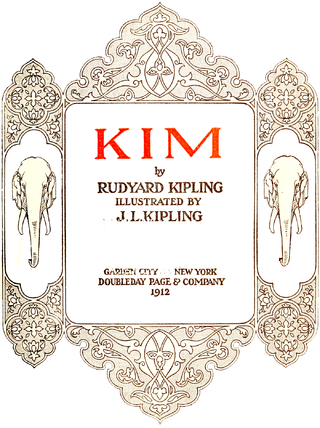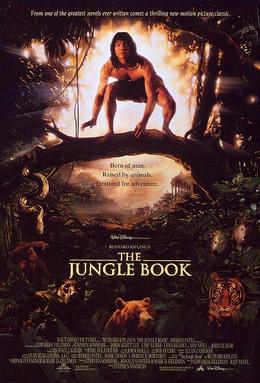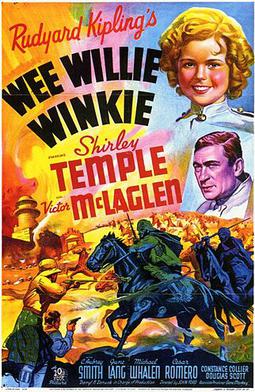Wee Willie Winkie
Percival William Williams, who is affectionately called 'Wee Willie Winkie' because of the nursery rhyme, is the only son of the Colonel of the 195th. The six-year-old is well-liked by everyone in the regiment, but becomes especially good friends with a subaltern he nicknames 'Coppy'. One day, Winkie confesses to Coppy that he saw Coppy kissing Miss Allardyce, whose father is a Major. Coppy persuades Winkie to keep silent about the matter, since he is engaged to Miss Allardyce, but they haven't announced it yet. Three weeks later, Winkie sees Miss Allardyce ride her horse across the river in an attempt to prove her mettle. He knows that the 'Bad Men' (who he equates with the goblins in a storybook) live on the other side of the river, so he rides out after her, even though he is grounded. Miss Allardyce's horse stumbles and falls, and Miss Allardyce twists her ankle. Winkie catches up to her and sends his pony, Jack, back to the cantonment for help as some natives approach. The natives debate whether to return Miss Allardyce and Winkie for a reward or hold them for ransom. When Winkie's riderless horse returns to the cantonment, E Company immediately marshals and sets out to find him. The Company frightens away the natives, and Winkie is lauded as a hero for saving Miss Allardyce. He announces that people should start calling him by his given name because, as the narrator says, he has "enter[ed] into his manhood."
Baa, Baa, Black Sheep
A young boy, called Punch, and a young girl, called Judy are sent to live with their Aunt Rosa, Uncle Harry, and cousin Harry, in England, while their parents remain in Bombay, India. Uncle Harry is kind to Punch, but Aunt Rosa, a domineering Christian, treats him only with scorn and contempt. Life gets steadily worse for Punch (who is eventually renamed 'Black Sheep') and his only escape from his insufferable life is in reading. Things take a turn for the worse when Uncle Harry, the only person besides Judy who shows Black Sheep any kindness, dies. Black Sheep is then sent to school and one day gets into a fight at school. This emboldens him and he begins threatening his cousin Harry and Aunt Rosa that he will murder them. He also attempts (and fails) to commit suicide. During this time it is discovered by a visitor to the house that Black Sheep has nearly gone blind. When their mother comes to retrieve them, life quickly improves again for Black Sheep and he goes back to being known as Punch.

Joseph Rudyard Kipling was an English novelist, short-story writer, poet, and journalist. He was born in British India, which inspired much of his work.
This is a bibliography of works by Rudyard Kipling, including books, short stories, poems, and collections of his works.

Kim is a novel by Nobel Prize-winning English author Rudyard Kipling. It was first published serially in McClure's Magazine from December 1900 to October 1901 as well as in Cassell's Magazine from January to November 1901, and first published in book form by Macmillan & Co. Ltd in October 1901. The novel is notable for its detailed portrait of the people, culture, and varied religions of India. "The book presents a vivid picture of India, its teeming populations, religions, and superstitions, and the life of the bazaars and the road." The story unfolds against the backdrop of the Great Game, the political conflict between Russia and Britain in Central Asia. The novel popularized the phrase and idea of the Great Game.

"The Man Who Would Be King" (1888) is a story by Rudyard Kipling about two British adventurers in British India who become kings of Kafiristan, a remote part of Afghanistan. The story was first published in The Phantom 'Rickshaw and Other Tales (1888); it also appeared in Wee Willie Winkie and Other Child Stories (1895) and numerous later editions of that collection. It has been adapted for other media a number of times.

Rudyard Kipling's The Jungle Book, also known as The Jungle Book, is a 1994 American adventure film co-written and directed by Stephen Sommers, produced by Edward S. Feldman and Raju Patel, from a story by Ronald Yanover and Mark Geldman. It is a live-action adaptation of the Mowgli stories from The Jungle Book (1894) and The Second Jungle Book (1895) by Rudyard Kipling unlike its counterparts, the animal characters in this film do not talk.

"Baa Baa, Black Sheep" is a semi-autobiographical short story by Rudyard Kipling, published in 1888.

"Danny Deever" is an 1890 poem by Rudyard Kipling, one of the first of the Barrack-Room Ballads. It received wide critical and popular acclaim, and is often regarded as one of the most significant pieces of Kipling's early verse. The poem, a ballad, describes the execution of a British soldier in India for murder. His execution is viewed by his regiment, paraded to watch it, and the poem is composed of the comments they exchange as they see him hanged.
My Boy Jack is a 1997 play by English actor David Haig. It tells the story of Rudyard Kipling and his grief for his son, John, who died in the First World War.

Akela is a fictional character in Rudyard Kipling's stories, The Jungle Book (1894) and The Second Jungle Book (1895). He is the leader of the Seeonee pack of Indian wolves and presides over the pack's council meetings. It is at such a meeting that the pack adopts the lost child Mowgli and Akela becomes one of Mowgli's mentors.
The "Fore and Aft" Regiment is the nickname of the fictional "The Fore and Fit Princess Hohenzollern-Sigmaringen-Anspach's Merther-Tydfilshire Own Royal Loyal Light Infantry, Regimental District 329A." It is mentioned in "The Drums of the Fore and Aft" by Rudyard Kipling.
In the British Army, a gentleman ranker is an enlisted soldier suited through education and social background to be a commissioned officer or indeed a former commissioned officer. Rudyard Kipling titled one of his poems, which was published in 1892, "Gentlemen-Rankers".

Wee Willie Winkie is a 1937 American adventure drama film directed by John Ford and starring Shirley Temple, Victor McLaglen, and Cesar Romero. The screenplay by Julien Josephson and Ernest Pascal was based on a story by Rudyard Kipling. The film's story concerns the British presence in 19th-century India. The production was filmed largely at the Iverson Movie Ranch in Chatsworth, California, where a number of elaborate sets were built for the film. This film was the first of three in which Shirley Temple and Cesar Romero appeared together, second was Ali Baba Goes to Town (1937) and The Little Princess (1939).

Naulakha, also known as the Rudyard Kipling House, is a historic Shingle Style house on Kipling Road in Dummerston, Vermont, a few miles outside Brattleboro. The house was designated a National Historic Landmark in 1993 for its association with the author Rudyard Kipling (1865–1936), who had it built in 1893 and made it his home until 1896. It is in this house that Kipling wrote Captains Courageous, The Jungle Book, The Day's Work, and The Seven Seas, and did work on Kim and The Just So Stories. Kipling named the house after the Naulakha Pavilion, situated inside Lahore Fort in present-day Pakistan. The house is now owned by the Landmark Trust, and is available for rent.
The Indian Railway Library was an enterprise conducted in Allahabad from 1888. It was a publishing venture of A. H. Wheeler & Co., who "had the monopoly on bookstall sales on Indian railway stations" It was a series of pamphlets intended to catch the interest of railway passengers, and offer cheap "throwaway" reading material.

In Black and White is a collection of eight short stories by Rudyard Kipling which was first published in a booklet of 108 pages as no. 3 of A H Wheeler & Co.’s Indian Railway Library in 1888. It was subsequently published in a book along with nos 1 and 2, Soldiers Three (1888) and The Story of the Gadsbys, as Soldiers Three (1899). The characters about whom the stories are concerned are native Indians, rather than the British for writing about whom Kipling may be better known; four of the stories are narrated by the Indians, and four by an observant wise English journalist. The stories are:
"The Other Man" is a short story by the British writer Rudyard Kipling, first published in the Civil and Military Gazette on 13 November 1886, in the first Indian edition of Plain Tales from the Hills in 1888, and in subsequent editions of that collection.

Alice Caroline Kipling was one of the MacDonald sisters, Englishwomen of the Victorian era, four of whom were notable for their contribution to the arts and their marriages to well-known men. A writer and poet, she was the mother of the author Rudyard Kipling, aunt of British Prime Minister Stanley Baldwin, and sister-in-law of Edward Poynter and Edward Burne-Jones.

Under the Deodars is a collection of short stories by Rudyard Kipling.

John Kipling was the only son of British author Rudyard Kipling. In the First World War, his father used his influence to get him a commission in the British Army despite being decisively rejected for poor eyesight. His death at the Battle of Loos caused his family immense grief.
Private George Flaxman of the Leicestershire Regiment was hanged at Lucknow maidan on 10 January 1887. He had been convicted by court-martial of the murder of Lance Sergeant William Carmody of the same regiment on or around 9 September 1886. The event may have inspired Rudyard Kipling's poem "Danny Deever", which describes similar events.













